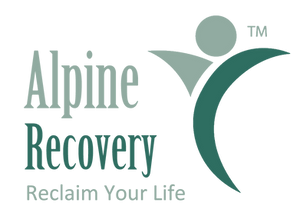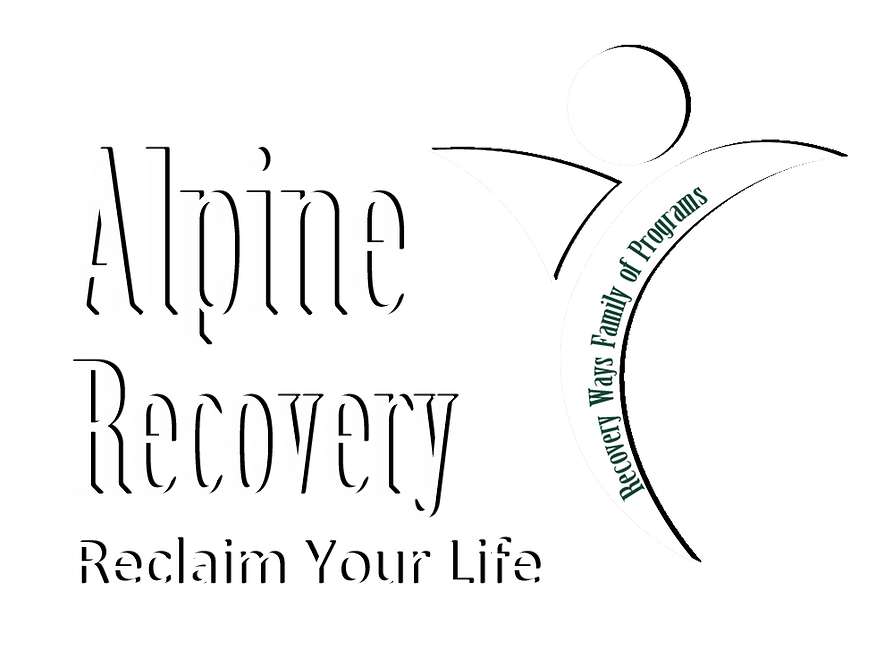Personalized Care in Outpatient Drug Rehab
At Alpine Recovery, we understand that each individual’s path to recovery is unique. Our outpatient drug rehab in Everett WA is designed to cater to the diverse needs of those struggling with substance abuse. By offering personalized care, we ensure that clients receive interventions tailored to their specific circumstances and goals. This individualized approach not only addresses the symptoms of addiction but also explores the underlying causes, paving the way for sustainable recovery.
Our program focuses on healing the whole person. We work closely with clients to develop treatment plans that incorporate a variety of therapeutic techniques. This approach fosters a sense of ownership and empowerment in the recovery process, encouraging clients to actively participate in shaping their healing journey.
Comprehensive Treatment Services
Alpine Recovery’s outpatient drug rehab in Everett WA provides a full spectrum of services aimed at addressing all aspects of addiction. The journey begins with detoxification, a critical first step that safely manages withdrawal symptoms under medical supervision. Our state-of-the-art facilities are equipped to provide a serene and safe environment for this crucial phase.
Following detox, clients engage in individual and group therapy sessions. These sessions are integral to the recovery process, offering a platform for self-exploration and peer support. Group therapy encourages clients to share experiences and learn from one another, while individual sessions allow for deeper introspection and personalized guidance from our licensed therapists.
Family Counseling: An Important Component
The impact of addiction extends beyond the individual, affecting family dynamics and relationships. At Alpine Recovery, family counseling is a cornerstone of our outpatient drug rehab in Everett WA. By involving loved ones in the recovery process, we help to mend and strengthen familial bonds, creating a support network that extends beyond the confines of our facility.
Family sessions are designed to educate members about addiction and equip them with tools to support their loved one effectively. By enhancing communication and fostering understanding, these sessions aim to rebuild trust and facilitate a healthier home environment conducive to recovery.
Our counselors work with families to address co-dependency and other relational challenges that may impede the recovery process. This holistic approach recognizes that recovery is a collective journey, best achieved with the support and involvement of family.
Holistic Approach to Recovery
Alpine Recovery’s outpatient drug rehab Everett WA incorporates a holistic approach to addiction treatment. We believe that true healing encompasses not only the mind and body but also the spirit. As such, we offer a range of holistic therapies designed to promote overall well-being and resilience.
Clients have access to mindfulness practices, which help in managing stress and enhancing emotional regulation. By teaching techniques such as meditation and breathing exercises, we empower individuals to navigate the challenges of recovery with greater calm and clarity. Our exercise programs also play a pivotal role in treatment, promoting physical health and releasing endorphins which naturally boost mood and energy levels.
Nutrition education forms another critical component of our holistic approach. Proper nutrition supports physical health and aids in the recovery process by restoring balance to the body. We work with clients to develop personalized nutrition plans that align with their recovery goals.
These holistic practices are seamlessly integrated into the treatment regimen, ensuring a comprehensive and balanced approach that addresses all facets of addiction.
The Role of Peer Support
Community and peer support are vital to the recovery process. At Alpine Recovery’s outpatient drug rehab in Everett WA, we emphasize the importance of building connections with others who share similar experiences. Peer support groups provide a safe space for individuals to express themselves, seek advice, and draw strength from one another.
Being part of a supportive community fosters a sense of belonging and reduces feelings of isolation that often accompany addiction. These connections serve as both a source of encouragement and accountability, inspiring clients to remain committed to their recovery journey.
- Sharing personal stories and challenges
- Learning from others’ experiences and successes
- Building relationships that extend beyond the rehab setting
Dedicated Professionals at Your Service
At the heart of our outpatient drug rehab in Everett WA is a team of dedicated professionals committed to providing exceptional care. Our staff comprises licensed therapists, counselors, and medical professionals, each bringing a wealth of experience and expertise to the table.
Our team collaborates closely with each client, ensuring they receive personalized attention and guidance throughout their recovery journey. We prioritize creating a safe and supportive environment where individuals feel comfortable to explore their struggles and triumphs openly.
Aftercare Planning for Sustained Recovery
Successful recovery extends beyond the primary treatment phase. At Alpine Recovery, we prioritize aftercare planning as part of our outpatient drug rehab in Everett WA. Our comprehensive aftercare programs are designed to support clients as they transition back into their daily lives.
These plans include continued therapy sessions, support group participation, and relapse prevention strategies tailored to each individual’s needs. We equip clients with the tools and resources necessary to maintain sobriety and navigate potential triggers confidently.
Ongoing case management and regular check-ins ensure that clients remain supported even after leaving our facility. By maintaining a connection to the recovery community, clients are better prepared to handle life’s challenges without resorting to substance use.
Embracing Sobriety and Wellness
Alpine Recovery’s outpatient drug rehab in Everett WA not only focuses on overcoming addiction but also on building a fulfilling and healthy life. Our program encourages clients to embrace sobriety as a starting point for personal growth and self-discovery.
Through a combination of therapy, education, and holistic practices, we empower individuals to pursue wellness in all aspects of their lives. By cultivating new interests, setting personal goals, and fostering a positive mindset, clients can achieve sustained recovery and a renewed sense of purpose.
Our commitment extends beyond recovery; we strive to inspire hope and confidence in each individual, helping them to rebuild their lives and foster long-term well-being.
What is the difference between outpatient and inpatient rehab?
Outpatient rehab and inpatient rehab differ primarily in terms of the environment and intensity of the treatment provided. Inpatient rehab requires individuals to reside at the facility for a set period, providing a structured environment free from external influences and triggers. It offers intensive, round-the-clock support and medical care, which can be crucial for those with severe addictions or dual diagnoses.
In contrast, outpatient rehab, like the programs offered by Alpine Recovery, allows individuals to live at home and maintain their daily responsibilities while attending scheduled treatment sessions. This model provides flexibility and enables clients to apply what they learn in real-time in their everyday environments. While both approaches are effective, choosing one over the other often depends on the individual’s specific needs, the severity of the addiction, and support systems available at home. If you’re considering rehab options, it might be helpful to ponder: How do you or your loved one balance your current life responsibilities with the rigor and focus needed for successful recovery?
Is outpatient rehab covered by Medicare?
Medicare does offer coverage for outpatient rehab, but it’s essential to understand the specifics to make the most of this benefit. Generally, Medicare Part B covers outpatient rehab services, which can include individual and group therapy, family counseling, and specific treatment interventions necessary for recovery. The coverage typically involves a co-payment or coinsurance after meeting the yearly deductible. However, the extent of coverage can vary based on specific treatment services and providers.
At Alpine Recovery, our team is experienced in working with various insurance providers, including Medicare, to help clients navigate the complexities of coverage. For those considering outpatient rehab, reaching out to a facility like ours can simplify understanding what services are covered and any out-of-pocket costs. As you plan for rehab, ask yourself: Have you discussed potential coverage options with your insurance provider to understand what financial support is available for your recovery journey?
How many days do you get in rehab?
The duration a person spends in rehab can vary widely depending on the program and individual needs. Inpatient rehab programs might last anywhere from 28 days to several months, while outpatient rehab tends to be more flexible. Alpine Recovery offers tailored outpatient programs that can be adjusted to fit the client’s schedule and progress, often ranging from several weeks to a few months or longer if needed.
Each person’s recovery timeline is unique, and the length of stay should be sufficient to address their specific treatment goals and ensure a solid foundation for sustained recovery. If you or a loved one are considering rehab, reflect on what timeframe would effectively support your recovery while allowing for other life commitments. How can you balance the intensity and duration of rehab with personal and professional responsibilities to achieve the best outcome?
Do you have to stay overnight in rehab?
Staying overnight is a requirement only for inpatient rehab programs, where individuals live on-site for the duration of their treatment. However, outpatient rehab, such as the services offered at Alpine Recovery, allows clients to return home daily after their sessions. This flexibility is ideal for those who have strong support systems at home and wish to maintain work, school, or family commitments while undergoing treatment.
Outpatient programs provide structured support and therapy sessions without the need for an overnight stay, making it a convenient choice for many. For someone contemplating their rehab options, it’s crucial to evaluate whether the home environment supports recovery and sobriety or if more structured supervision is necessary. What aspects of your home life could support your recovery, and how might outpatient treatment complement them?
Why is family counseling important in outpatient drug rehab?
Family counseling is a critical component of outpatient drug rehab because addiction often impacts not just the individual but their entire support network. The counseling sessions provided by Alpine Recovery aim to repair and strengthen family bonds, fostering a supportive environment conducive to recovery. These sessions educate family members about addiction, improve communication, and address issues like co-dependency that can hinder recovery.
Involving family in the recovery process helps build a robust support system that extends beyond clinical settings, enhancing the chances of sustained recovery. By fostering understanding and rebuilding trust within the family, individuals are more likely to remain committed to their sobriety journey. Consider: How does your family currently support or challenge your recovery, and in what ways can family counseling help bridge gaps for better understanding and support?
How does peer support enhance outpatient drug rehab?
Peer support plays an invaluable role in outpatient drug rehab by providing individuals with a sense of community and belonging. At Alpine Recovery, connecting with peers who share similar experiences can significantly bolster an individual’s commitment to recovery. Peer support groups offer a safe space for sharing personal stories, challenges, and successes, building relationships that persist beyond the formal treatment setting.
This network of support reduces feelings of isolation, provides encouragement, and holds individuals accountable, making recovery a collective journey rather than a solitary struggle. Engaging with peers often leads to lifelong friendships and a shared commitment to sobriety. If you’re looking into rehab options, consider how a community of peers could support your journey. What role do you envision peer support playing in your recovery, and how might it help you achieve your goals?
Resources
- Substance Abuse and Mental Health Services Administration – The Substance Abuse and Mental Health Services Administration (SAMHSA) is the leading agency within the U.S. Department of Health and Human Services focused on improving behavioral health across the nation.
- National Institute on Drug Abuse – The National Institute on Drug Abuse (NIDA) is a federal government research institute focused on the science of drug use and addiction.
- MentalHealth.gov – MentalHealth.gov provides information and resources related to mental health, including substance abuse and addiction.
- National Institutes of Health – The National Institutes of Health (NIH) is the primary agency for conducting and supporting medical research in the United States.


